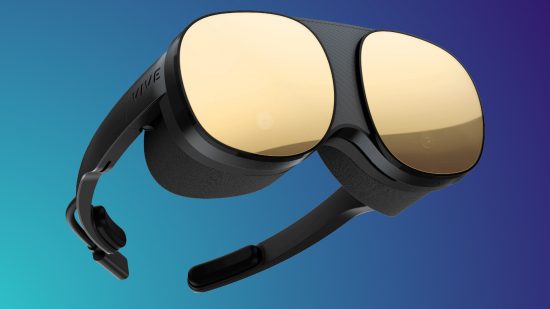Oculus Quest 2 has dominated VR these last two years, so it’s unsurprising that standalone rivals continue popping up. While Bytedance is making waves with Pico 4, HTC has chiefly stuck to PC VR and business headsets with its Vive range, barring some odd exceptions. However, thanks to a recent leak, we’ve got a fresh look at HTC’s standalone plans.
Marking a new contender for the best VR headset against Quest 2, YouTuber Brad Lynch revealed the HTC Vive Flowcus in a recent video. A successor to Vive Flow, Lynch avoids directly showing off any headset photos, which he claims were provided to him in black and white. Instead, he partnered with product designer Marcus Kane to offer realistic 3D renders based on those images.

Citing “many industry sources,” Lynch details key specifications in this report. Reportedly, Flowcus uses pancake lenses with an LCD panel resolution of 1920 x 1920 per eye, powered by the Qualcomm XR2 Gen 1 chip previously seen in Quest 2. Lynch states that HTC’s new headset also uses four black-and-white tracking cameras, one RGB passthrough camera, and the same tracked controllers as Vive Focus 3.
Claiming Flowcus will launch in early 2023, Lynch advises this headset’s targeting a “prosumer” audience like Meta Quest Pro. Clarifying further details after the video’s publication, they stated on Twitter that it would potentially cost over $1000. Naturally, pricing remains speculative until HTC officially reveals this upcoming VR headset. However, if true, that’s comparable to the HTC Vive Pro, which costs nearly $1,100 for the complete equipment.
This isn’t the first time Lynch has been in the news recently. Back in September, a Quest 3 leak gave us our first look at Meta’s next headset via CAD images. While Oculus Quest 3 seemingly lacks the facial and eye tracking features seen in Meta Quest Pro, Lynch claims it’ll use the more powerful Qualcomm XR2 Gen 2 chip. Of course, this could change, and Meta’s likely tested multiple designs, so don’t take these specs as a given until its revealed.
